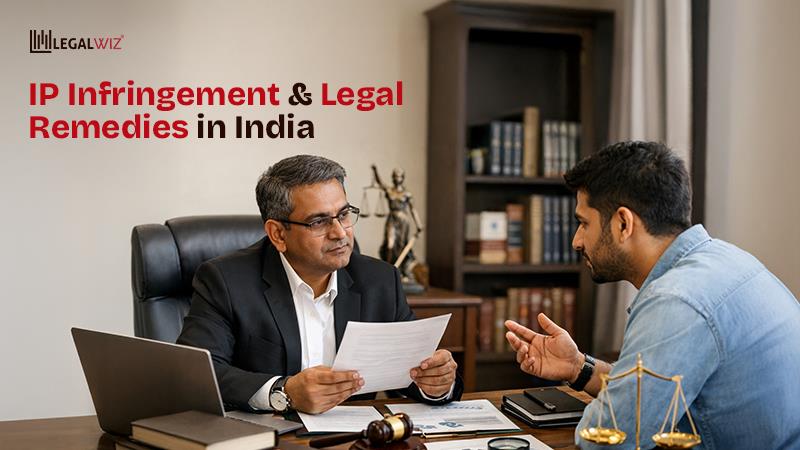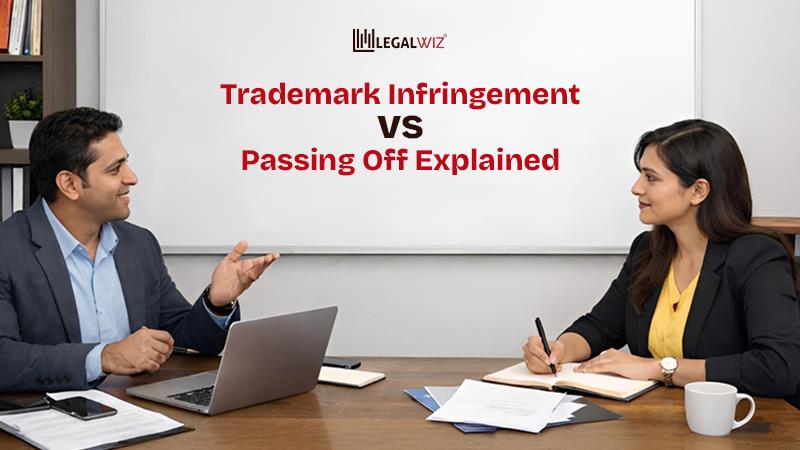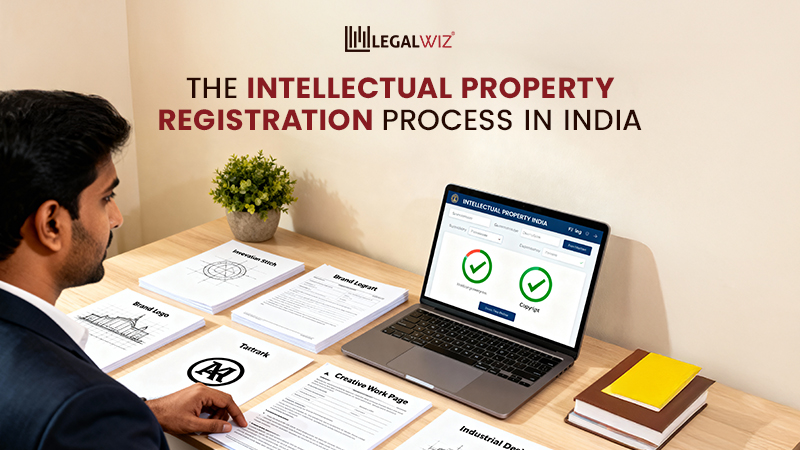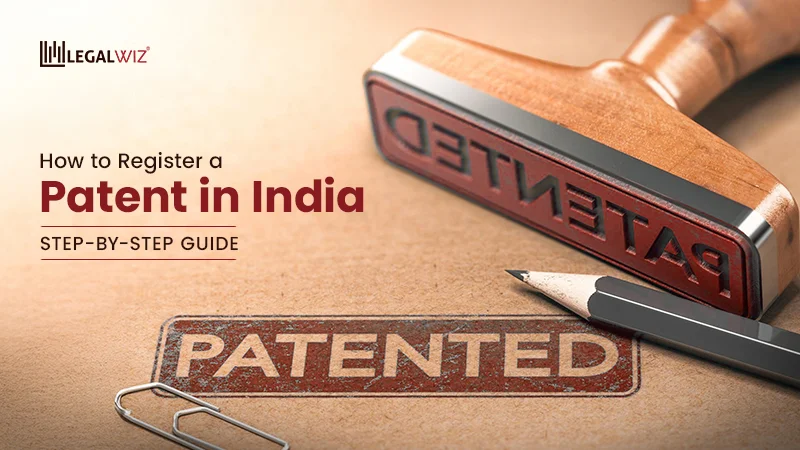All About Trademark Objection under section 9 of Trademark Act
The Trademark Act 1999 along with the prescribed rules is the law governing registration and protection of trademarks in India. When you choose to obtain a protection for your brand through trademark, you need to be aware of the various steps of the registration process. Filing a trademark objection reply is one of the most important steps in this process of obtaining TM protection. So, in this blog, we will talk about the trademark objection under section 9 of Trademark Act. Moreover, we will also cover the process of filing a reply to trademark objection under section 9 of trademark Act. So, let’s delve in.
What is trademark objection under section 9?
Once you submit the trademark application to the applicable trademark jurisdiction in India, an officer is assigned to review your mark. This trademark officer scrutinizes all the documents and issues a report of examination. Here, if they feel there is any issues in your application, they will mention it in the examination report.
Trademark Objections are based on either of these two grounds: a. Absolute grounds and b. Relative Grounds. Trademark objection under section 9 of the Trademarks Act, 1999 (“the Act”) covers the ‘absolute grounds’. Learn more about the relative grounds of Trademark refusal here.
Scope of Trademark Objection Under Section 9
After understanding what is trademark objection reply, let’s see the scope of section 9 trademark act. You will need to file a reply to trademark objection under section 9 of the Act for the following types of marks:
Marks which are devoid of any distinctive character
This means all marks which are very common and are not capable of having a distinguished identity in the market. Marks are non – distinctive when they consist of only such words that are very common and have a dictionary meaning. These marks usually have no unique brand identity.
Marks consisting non distinctive terms and words
The best way to explain this trademark objection under section 9 is through the example of Apple Inc. If Apple Inc. sold apples instead of electronic products, they would have gotten this objection while getting their brand registered. This is the most common absolute ground for refusal for trademark registration, covered under section 9 (1)(b) of the trademark act.
Customary Marks
An example of this can be that the mark “Xerox” has now become customary and a substitute for the word ‘photocopying’. However, since the Xerox owners have been using the mark for a long time, they have become a well-known mark, they are a registered proprietor of Trademark.
Marks Capable of confusing the public
For example, if someone applies for registration of the mark “Adibas” it is very likely to confuse the market with the well-known trademark “Adidas”. Hence, the mark that is creating such confusion falls under trademark objection under section 9 of trademark act.
Capable of hurting the religious sentiments of anyone
India being a secular country, is home to a lot of people with different religious beliefs. It becomes the duty of young entrepreneurs to take that extra effort to protect religious sentiments. Hence the trademark objection under section 9 also protects religious beliefs.
In 2015, the word “Ramayan” was refused registration under class 3. The reasoning behind this order was that this term is associated with religious sentiments, and hence, no individual can claim an exclusive right over such a word.
Obscene scandalous matters, or is a restricted name
The Emblems and Names (Prevention of Improper Use) Act, 1950 sets out a list of restricted names . No person can apply for any of these names. Further, any matter that is ‘obscene’ or scandalous in nature is also prone to objection under section 9 of trademark act.
Logo consisting of the shape of the goods or products the business is aiming to sell
As stated above, these grounds cover the trademark objection under section 9 of trademark act. However, there are certain measures you can take to protect your mark from refusal.
Steps to reply to trademark objection under section 9
Filing a reply to trademark objection under section 9 of trademark act is easy. All you need to do is follow the below mentioned steps:
Draft the Reply under section 9
Based on the grounds given above, you will need to draft your reply to trademark registration under section 9 of the trademark act. Ideally, getting help from professionals like LegalWiz.in experts can make the process much easier for you.
Gather Requisite Documents
Since the section 9 of trademark act contains the absolute grounds of refusal for a trademark, gathering evidentiary documents is an important aspect of securing your brand identity. This can include different types of advertising materials, etc to prove the usage of your brand name in the appropriate goods and services class.
Submit the Reply
Go to the IPIndia portal, sign in to your account, and upload the PDF format for your reply. Moreover, if you are also hiring an attorney, you should get a POA. Learn more about the POA full form and meaning here.
Also Read: Different Types of Trademarks in India
Ways to Avoid Objection under section 9
When a trademark application is made, but the mark does not have all essential characteristics of a trademark, the officer issues an examination report. Usually, avoiding the section 9 trademark objection is very important as dealing with it becomes difficult. Hence, the following are some tips to help you avoid objections under section 9 of trademark act.
Try to be unique when it comes to your brand!
This is the most helpful suggestion to avoid the trademark objection under section 9. The whole basis of section 9 objection can be avoided if you use a mark that is unique and true to your business. A unique mark will not only be registered sooner but will also leave a long-lasting impression in the industry. For Example “Nikon” for photography products such as cameras, stood as a unique and distinctive mark.
Claim a Date
Claiming a date of prior use is a big exception to all the absolute grounds of trademark objection under section 9. This is very helpful, especially when you are aware that your mark is not distinctive. Claiming a date of prior use means that you are letting the registry know that you have been using the mark, even before you applied for the same. This claim can help a lot of brands having non-distinctive names with registering their marks.
When the mark has acquired a secondary meaning in the industry


Examples will help you understand this easily. Marks like “Book my Show” or “I’m lovin’ it” are not exactly distinctive. However, as soon as we hear these words, we know the two pioneer brands that one is talking about. This is known as “acquiring a secondary meaning”. When the generic words have such a strong impact on the target market, the registry cannot refuse them based on objection under section 9.
Select the most appropriate class for your business
This can be a major factor that will help you in avoiding any objections. When you understand how to select Trademark class, you can easily overcome the objection under absolute grounds of the Act.
How Can LegalWiz.in Help You?
Even LegalWiz.in had to overcome the TM objection under section 9. We can understand the hassle caused to business owners due to objections to TM registration. Our team of expert lawyers aim to assist in overcoming trademark objections. We help you get online trademark registration with the best experts around.
Frequently Asked Questions
What are the grounds for refusal of registration?
The grounds for refusal are divided into two broad categories, ie., absolute and relative.
How do you respond to a Section 9 trademark objection?
You can file a reply to section 9 trademark objection by submitting a draft reply letter through the relevant form Mis-R in the TM office.
What is the timeline for filing a reply in section 9 of trademark act?
The timeline for filing a response to examination report is 30 days from issuance of the examination report.

Diksha Shastri
As a writer, Diksha aims to make complex legal subjects easier to comprehend for all. As a Lawyer, she assists startups with their legal and IPR drafting requirements. To understand and further spread awareness about the startup ecosystem is her motto.







